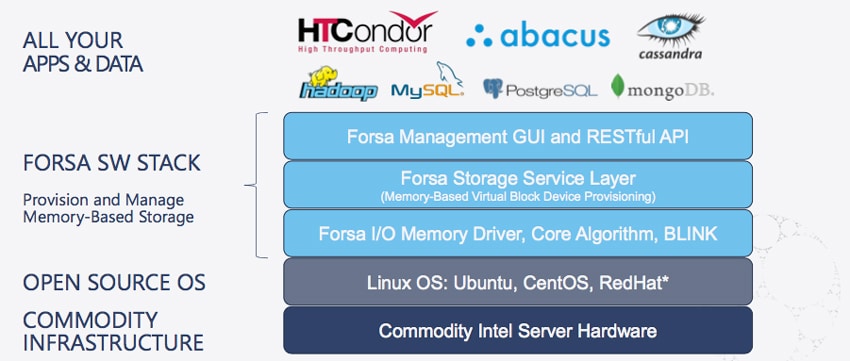
Today Formulus Black announced the latest version of its enterprise Forsa software, Forsa 3.0. The software is said to enable any application to run in memory without modification. The latest version improve scalability enabling larger databases, I/O hungry HPC jobs, artificial intelligence and machine learning model training to run in memory on commodity hardware through support for larger systems with more CPUs and memory. The new version now supports Intel Optane DC persistent memory.
Formulus Black states that their software is the first in the world to persist complete system images and data in memory while safeguarding against power loss. As we’ve previously stated, ForsaOS aims to dramatically cut memory requirements by using proprietary algorithms to transform data into the company’s own language, Formulus Bit Markers. Formulus Black claims their language losslessly compresses memory by deduplicating repetitive bit patterns. A process similar in concept to the way .pngs provide high image quality with relatively low memory footprints, but applied more generally. The latest version expands the company’s capabilities to larger enterprises.
Features include:
- Support for larger systems with more memory and CPUs
- Support for systems with Cascade Lake CPUs and Optane DC persistent memory
- Support for horizontal scale-out of memory across fabrics and nodes
- Replication support to provide failover between nodes
- Selective BLINK of Virtual Machines and LEM data for fast backup, restore, and disaster recovery
- Enhanced GUI with cluster dashboard and support for up to an 8-node cluster
- Support for multiple operating systems, including Ubuntu and CentOS
Sign up for the StorageReview newsletter

